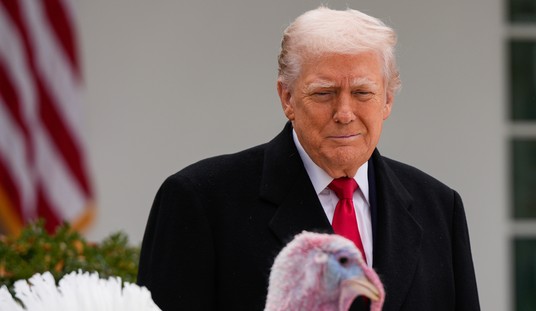When we first learned that Google's autocomplete function in its search engine appeared to be blocking suggestions about Donald Trump's attempted assassination (or even his name), the company assured us that those results were simply "an anomaly" in the code. But the House Judiciary Committee has been digging into the question more deeply and asked parent company Alphabet's legal counsel to explain further. The answers the committee received weren't exactly definitive, but they may provide a bit of additional clarity. First of all, the search engine absolutely was blocking autofill from pointing users to articles about the assassination attempt. But was it out of some bias against Trump? According to them, the system was performing as designed, but the design was overly broad. We'll look into it a bit further here this evening. (National Review)
An attorney for Google’s parent company admitted that the autocomplete tool for its search function did not include the assassination attempt against former president Donald Trump. The admission came after the apparent search issues drew controversy online.
Alphabet Inc.’s counsel informed the House Judiciary Committee that bugs in Google’s autocomplete tool prevented it from predicting searches about the attempt on Trump’s life. The built-in protections that Google installed for searches related to political violence were “out of date,” the attorney said, and prevented the search autocomplete feature from generating results on the assassination attempt against Trump three weeks ago.
Google’s autocomplete feature experienced similar issues when users searched for “President Donald” and related search terms. The attorney said the bugs were fixed after they were brought to Google’s attention.
I will be among the first to agree that Google and Alphabet have given us more than sufficient reasons to question their inherent bias (or lack thereof) in political matters. They represent a massive corporation dealing in unimaginable sums of money and their tendrils are deeply entwined inside the government and regulatory agencies. If they had the opportunity to enact policies that might benefit them financially in the long run, I have no doubt they would consider them seriously. Look no further than how they handled issues related to the government's response to the COVID pandemic for examples.
With all of that said, however, having some familiarity with the designs of these search engines, the answers that were given to the Judiciary Committee really weren't all that crazy. Taking the least damaging claim first, the failure to fill in "President Donald" with the name "Trump" was apparently happening. But as I noted in the "anomaly" post linked at the top, I checked it a few days later and it worked just fine. So did the one for "Vice President Kamala." If the issue existed, it wasn't there for long.
As to the far more damning searches for information about the assassination attempt, it was easy enough to note that the shooting created an iconic moment for President Trump and his approval ratings and donations were surging. A liberal outlet could easily be tempted to suppress such search results. But in reality, anyone searching for information related to trying to assassinate a President would no doubt raise red flags across the board. The FBI would (or at least should) be interested in any persons conducting such a search. Would it be that surprising that their default filters would prevent the autocomplete, typeahead function from refusing to fill in questions such as "How could I ass**ate President D*****"?" ( I won't even type it out here or we will be blocked as well.)
The code underlying the search engines is smart, but it's not "human smart." I believe that they had such a filter in place to cover all such eventualities. And after the flaw was discovered, they had to go in and manually revise it to allow for searches dealing with news of the events in Butler, Pennsylvania. I'm generally not shy about criticizing Google and Alphabet, but in this case I believe I'm going to give them a pass.








Join the conversation as a VIP Member